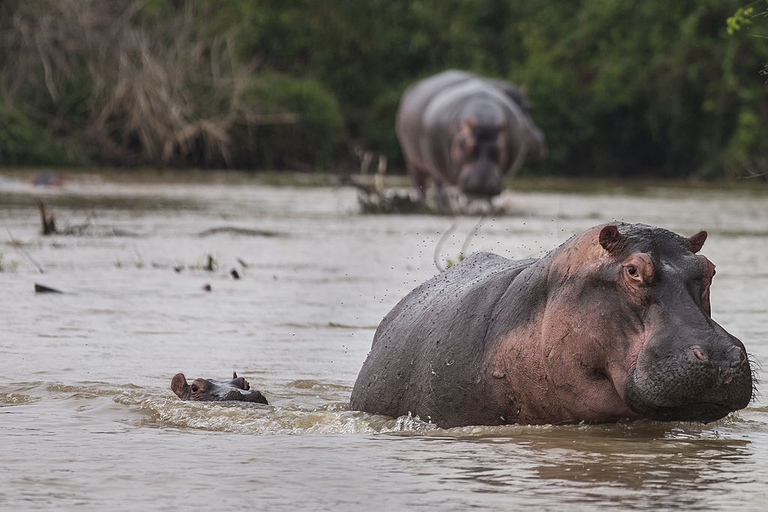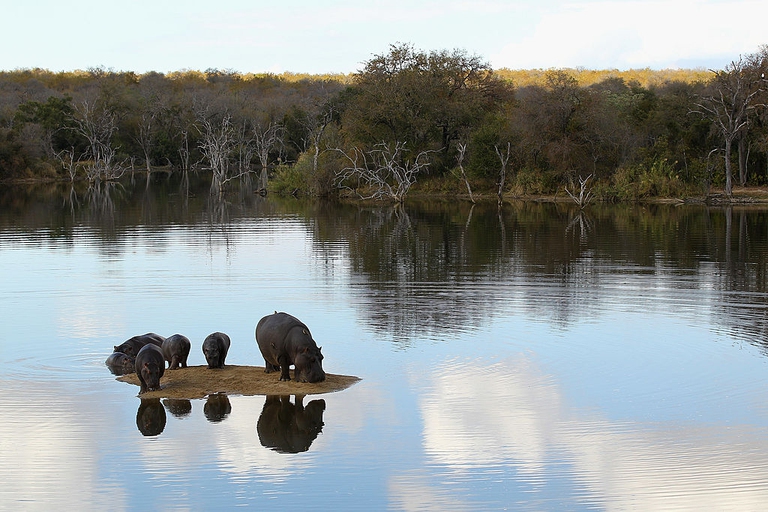
Our species took its first steps in a world covered in trees. Today, forests offer us sustenance, shelter, and clean the air that we breathe.
The Zambian government has reversed a controversial plan to approve a large-scale programme to cull more than 2,000 hippos over a five year period in Eastern province’s Luangwa Valley, situated over 300 kilometers from the capital Lusaka. Animals rights activists cried foul following the original decision, influencing its overturning. Read more: Zambia to allow trophy hunters to
The Zambian government has reversed a controversial plan to approve a large-scale programme to cull more than 2,000 hippos over a five year period in Eastern province’s Luangwa Valley, situated over 300 kilometers from the capital Lusaka. Animals rights activists cried foul following the original decision, influencing its overturning.
Read more: Zambia to allow trophy hunters to kill hippos, without evidence of overpopulation
“The latest data confirms that in the decade to 2016, more than 6,000 hippo teeth, 2,048 hippo tusks and a further 1,183 hippo ‘trophies’ were exported to EU states alongside thousands of other parts and products,” wildlife conservation groups Born Free reports.
In fact, the Zambian government’s initial plans to carry out what was termed a “hippo management hunt” were abruptly cancelled in 2016, then re-instated two years later. In turn, international pressure from Born Free and other activist organisations for the Zambian government to scientifically justify the killing of hippos, together with threats of legal action and calls from the National Association of Community Resources Board in Zambia (NACRBZ) to reverse the cull, intensified.
These are some of the factors that led to the Zambian authorities to once again make a U-turn in their controversial decision to initiate the culling programme. A development which has seen hunting firm Mabwe Adventures, originally awarded the “hippo management” contract in 2016 by the government, to withdraw from the agreement.
“Since it was officially announced in 2018 that the cull program will commence in 2019, we have been bombarded with hate mail, calls and messages on social media and mainstream media,” South African hunting outfitter Umlilo Safaris commented on its website. “We have already notified all the clients that have booked these hunts about the recent developments, luckily this number is low,” it added.
Read more: South Africa, lions bred in farms for trophy hunting and the sale of their bones
As efforts have intensified to halt trade in elephant ivory, animal rights activists argue that in recent years hippos are being increasingly targeted for their tusks as a replacement. Unsurprisingly, the conservation status of this animal remains precarious, listed as ‘vulnerable’ on the IUCN’s Red List, which classifies how endangered species are, with an estimated population of just 115-130,000. One, therefore, that can’t afford the senseless culling of 2,000 of its members.
Siamo anche su WhatsApp. Segui il canale ufficiale LifeGate per restare aggiornata, aggiornato sulle ultime notizie e sulle nostre attività.
![]()
Quest'opera è distribuita con Licenza Creative Commons Attribuzione - Non commerciale - Non opere derivate 4.0 Internazionale.
Our species took its first steps in a world covered in trees. Today, forests offer us sustenance, shelter, and clean the air that we breathe.
Poachers in Africa are encroaching on wildlife land and killing rhinos in travel hot spots now devoid of visitors due to the coronavirus pandemic.
Actor and environmental activist Leonardo DiCaprio has contributed two million dollars to a fund to protect Virunga National Park in Congo from threats such as terrorism, the coronavirus and poaching.
For the first time in seventeen years, Iceland’s two main whaling companies won’t resume whale hunting. The announcement concerns this year’s season but could carry into the future.
The relationship between the coronavirus and wildlife is complex: while the pandemic may lead to a reduction in the illegal trade in wild animals, it may also encourage it in other respects.
The largest coral reef in the world is severely threatened by climate change, but researchers are developing strategies that could contribute to saving the Great Barrier Reef.
NGO Free the Bears has opened a mountain sanctuary for moon bears in Laos. With the government’s help, it aims to close all bile farms by 2022.
Seychelles have extended its marine protected area, which now covers over 400,000 square kilometres, an area larger than Germany.
The tapir was reintroduced into Brazil’s Atlantic Forest, the country’s most at-risk ecosystem. The species can play a key role in the forest’s recovery.









